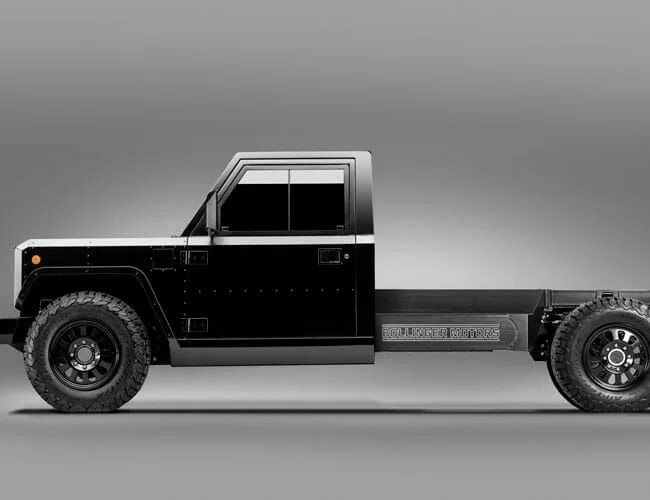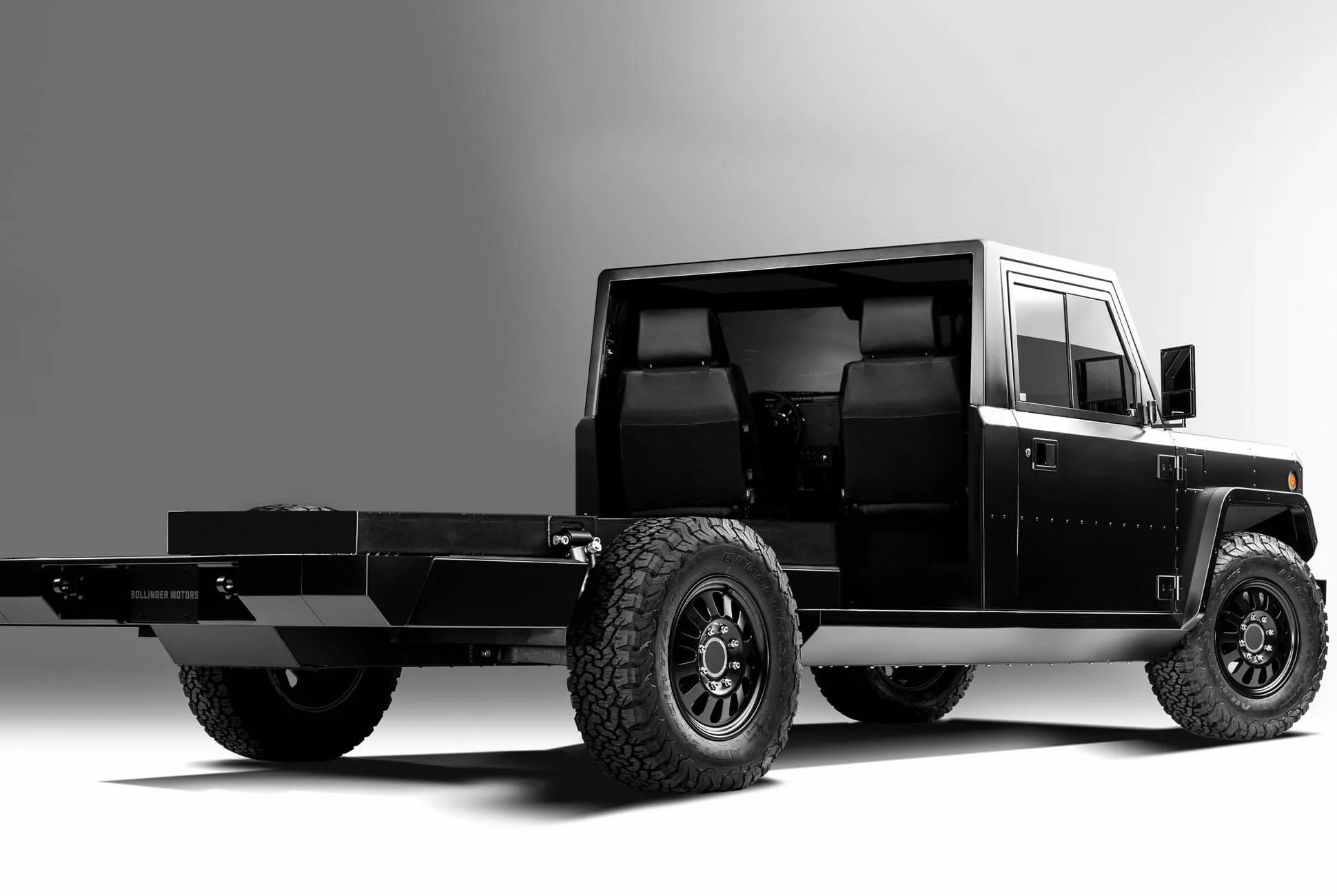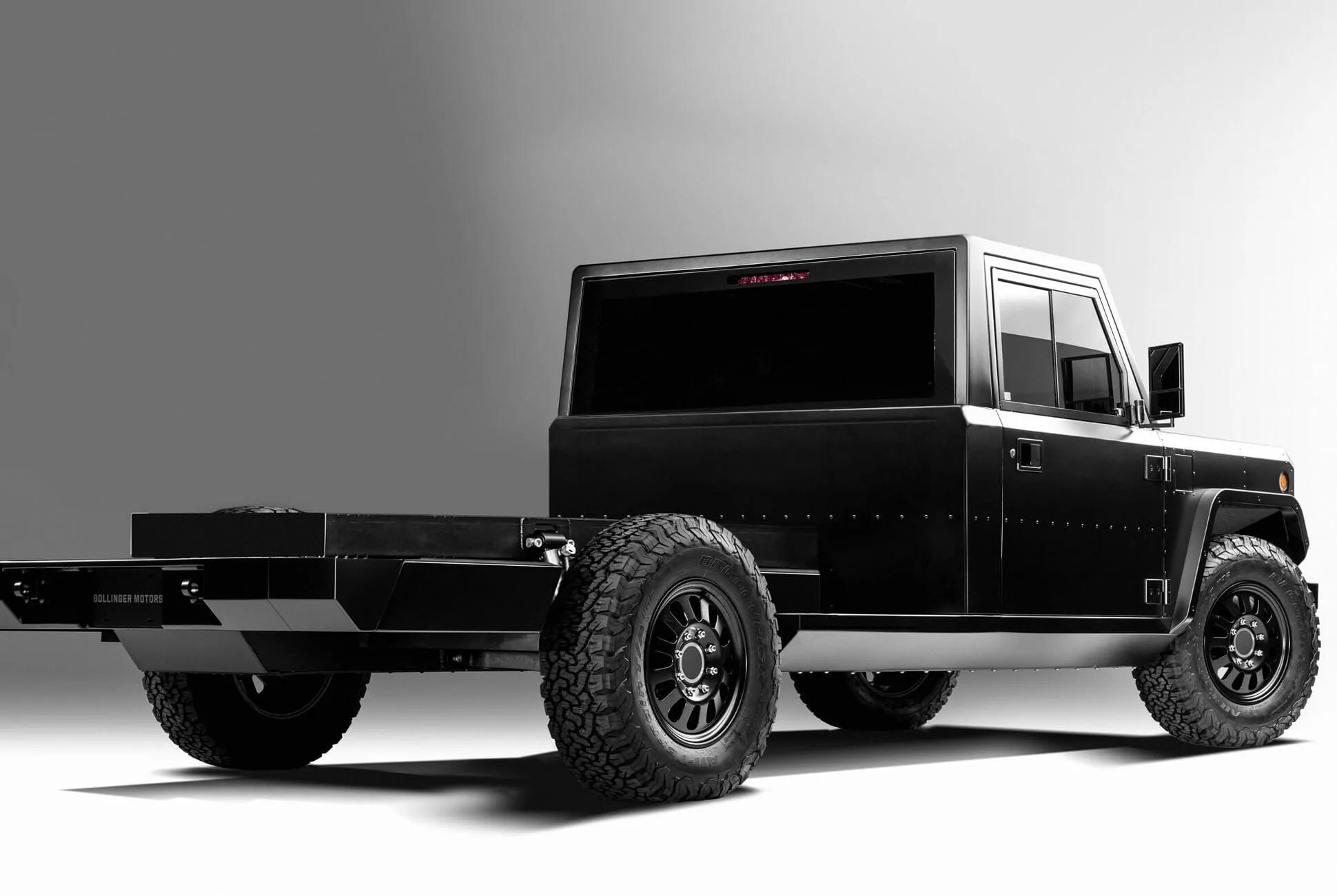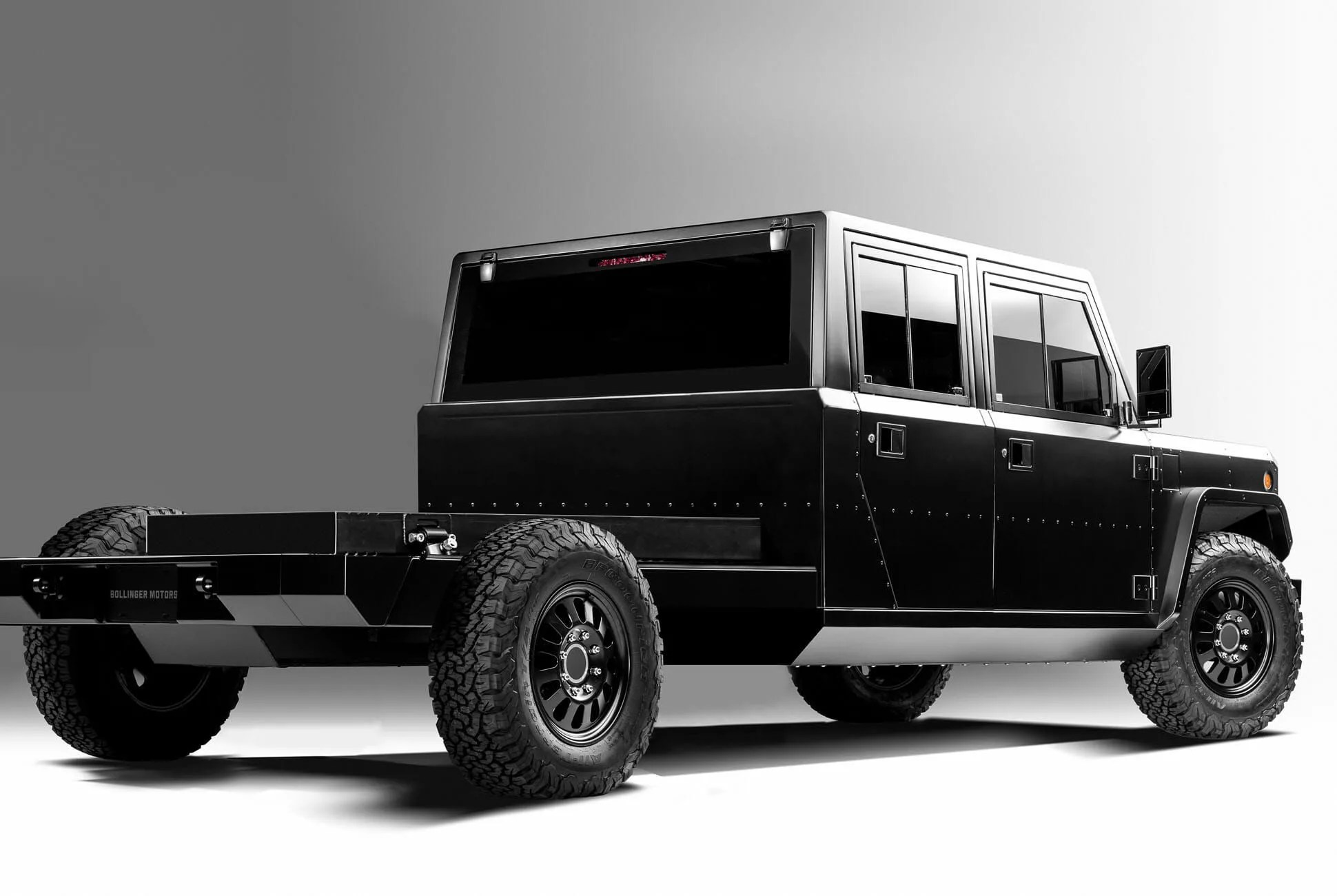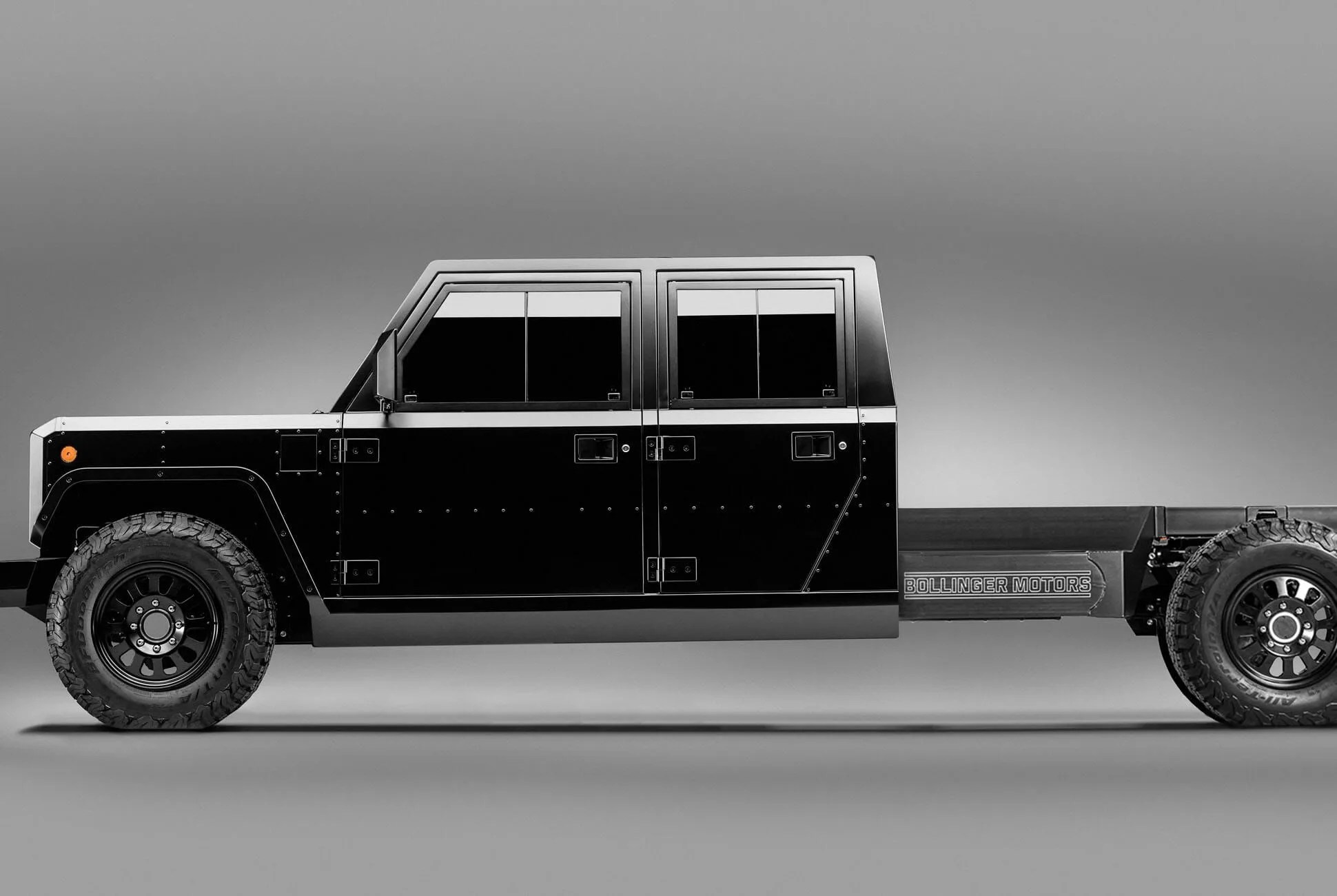5 photos
Last fall, Bollinger Motors revealed its all-electric B1 SUV and B2 pickup truck. The B1 and B2, in case you’ve forgottem are extremely capable 600-plus-horsepower machines design to handle extreme off-road terrain; they also come with an extreme price tag that starts at $125,000. That price point — and design choices like foregoing a fifth seat in the back, or not having airbags — mean the B1 and B2 will wind up being niche passenger vehicles.
But Bollinger believes its trucks may have broader commercial applications. The company just announced a B2 chassis cab — a.k.a. a work truck version. It will be available in two-door and four-door cab versions, with a customizable wheelbase. Bollinger says it will begin offering the B2 chassis cab in late 2021.
Bollinger’s decision to make that pivot towards commercial vehicles is not too surprising. Fleet vehicles will likely be a significant market for EVs, as companies strive for sustainability over the coming decades. (Rivian, notably, has inked a huge deal to produce delivery vans for Amazon.)
Yet with this announcement, Bollinger left out two key details: powertrain and price. (Bollinger only notes that the vehicle will have dual motors, an all-wheel-drivetrain, all-terrain capabilities and, like the standard B2, use a 120-kWh battery pack.) A vehicle with 614 horsepower, 688 lb-ft of torque, a 0-60 mph time of 4.5 seconds and impressive approach, break-over and departure angles would seem to be profound overkill for most commercial applications (unless you’re doing pizza delivery on the Rubicon trail). So would paying $125,000-plus for a working rig.
But here’s the secret twist: if the specs for the chassis cab are similar to the standard B2, one exciting use could be using it as the basis for the ultimate electric overlanding camper.
Those capabilities that seem like overkill for commercial use would be much appreciated by people taking their camping rigs beyond the pavement. The B2’s 5,000-plus-pound payload rating offers a lot of flexibility for building out the cabin. The trucks will come equipped with a 10-kW on-board charger/inverter, configurable power system controls and an integrated thermal management system, all of which would come in handy for building out a living space.
